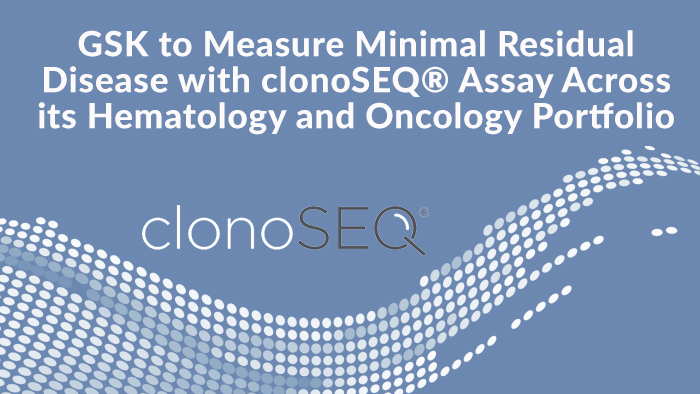MRD is increasingly used as an endpoint in clinical trials, and clonoSEQ has emerged as the premier test to reliably and accurately measure MRD to help advance novel therapies.
The clonoSEQ Assay is the first and only FDA-cleared assay for MRD in chronic lymphocytic leukemia (CLL), multiple myeloma (MM) and B-cell acute lymphoblastic leukemia (ALL). Minimal residual disease (MRD) refers to the small number of cancer cells that can stay in the body during and after treatment. clonoSEQ was initially granted De Novo designation and marketing authorization by the FDA for the detection and monitoring of MRD in patients with MM and B-ALL using DNA from bone marrow samples. In August 2020, clonoSEQ received additional clearance from the FDA to detect and monitor MRD in blood or bone marrow from patients with CLL.
The clonoSEQ Assay leverages Adaptive’s proprietary immune medicine platform to identify and quantify specific DNA sequences found in malignant cells, allowing clinicians to assess and monitor MRD during and after treatment. The assay provides standardized, accurate and sensitive measurement of MRD that allows physicians to predict patient outcomes, assess response to therapy over time, monitor patients during remission and predict potential relapse. Clinical practice guidelines in hematological malignancies recognize that MRD status is a reliable indicator of clinical outcomes and response to therapy, and clinical outcomes have been shown to be strongly associated with MRD levels measured by the clonoSEQ Assay in patients diagnosed with CLL, MM and ALL.
Reference:
“Adaptive Biotechnologies Announces Collaboration with GSK to Measure Minimal Residual Disease with clonoSEQ® Assay Across its Hematology and Oncology Portfolio.” Adaptivce Biotechnologies, 10 Nov. 2020, https://investors.adaptivebiotech.com/news-releases/news-release-details/adaptive-biotechnologies-announces-collaboration-gsk-measure. Press release.

